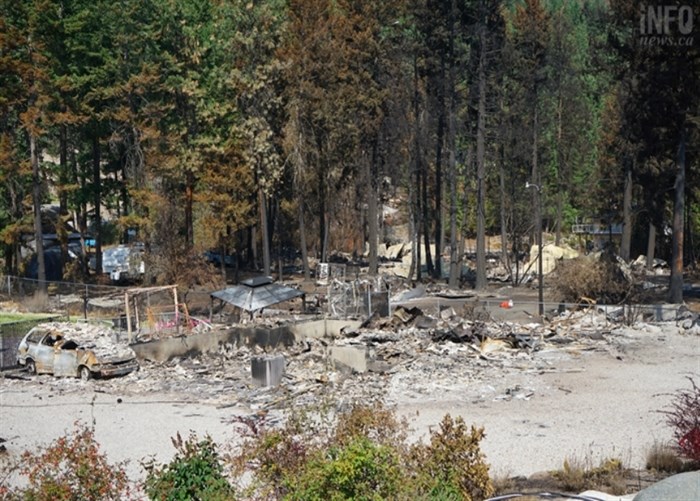Central Okanagan regional district asks for delay in new provincial housing rules

While all BC communities with populations of more than 5,000 have to allow up to four homes on single-family lots under new provincial housing rules, rural areas are also being told to densify.
But the Regional District of Central Okanagan is calling for an 18-month delay before they have to adapt the new infill housing rules that would allow for a secondary suite and/or an ancillary dwelling on each lot.
“Due to infrastructure and servicing limitations in the electoral areas, without robust policies and regulations, additional density may increase risks to public health, safety or the environment,” says a report going to the regional district board meeting on Thursday, March 28.
READ MORE: How new provincial housing rules are boosting and hurting development in Central Okanagan
A review of its secondary suite policies was done from 2017 to 2019.
“The review team found that the cumulative effects of increasing density may cause drainage and slope stability challenges, particularly in areas without access to community sewer and without proper drainage plans,” the report says.
Currently, a second suite triggers a zoning amendment so such things as the capacity of septic systems can be reviewed.
There are also concerns about small community and private water suppliers, the road networks, especially where there is only one point of access, setbacks from lakes and streams and fire protection.
The regional district needs much more time to study those impacts than allowed by the province's June 30 deadline do adopt new bylaws to allow the extra housing, the report says.
Those concerns are legitimate areas the province takes into consideration when evaluating exclusion applications but there is also an “extraordinary circumstances” category.
That includes “a situation that would result in a sufficient diversion of local government resources such that compliance with the legislation in the specified timeline would not be possible,” the report says.
In 2021, 75 homes were destroyed within the regional district by the White Rock Lake wildfire and another 107 were razed last year by the McDougall Creek wildfire, along with about 150 units at Lake Okanagan Resort.
“These are extraordinary circumstances, and Regional District of Central Okanagan staff continue to provide recovery support to residents effected by these events, administering building permits and development permits and providing guidance on demolition, site remediation, water intakes, community water sources, archaeological sites, riparian and floodplain regulations, road access, drainage and hazards that may exist on adjacent crown lands,” the report says.
To contact a reporter for this story, email Rob Munro or call 250-808-0143 or email the editor. You can also submit photos, videos or news tips to the newsroom and be entered to win a monthly prize draw.
We welcome your comments and opinions on our stories but play nice. We won't censor or delete comments unless they contain off-topic statements or links, unnecessary vulgarity, false facts, spam or obviously fake profiles. If you have any concerns about what you see in comments, email the editor in the link above. SUBSCRIBE to our awesome newsletter here.



